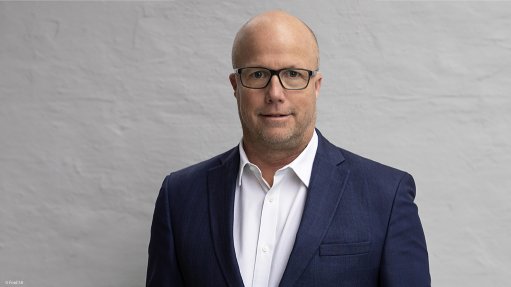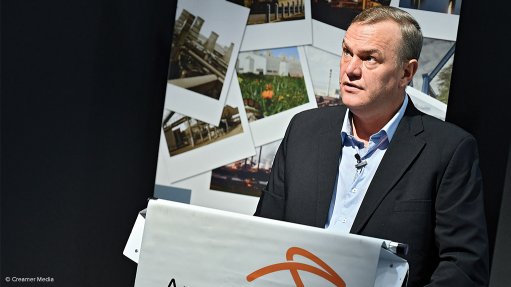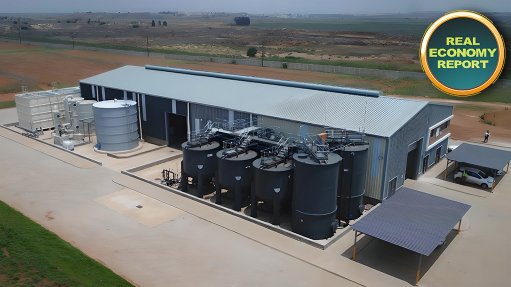Proudly artisan
Mention of the word ‘welder’ conjures up images of someone wearing heavy-duty protective gear such as a big steel helmet to shield the face from sparks. You wouldn’t think the person behind the goggles is highly educated, with an engineering doctorate and a well-nigh two-decade career as an academic under his belt nogal.
This description perfectly fits Kabir Abu Bilal. A mechanical engineer who has worked at Ahmed Bello University, one of Nigeria’s more prestigious universities, for the past 18 years, the last few as a professor, he has become a frequent subject of media coverage because of his welding sideline in his home state of Zaria.
Among the latest media organisations to beat a path to his door was the British Broadcasting Corporation (BBC). What its reporter found was not a workshop that is kitted out with the most sophisticated welding equipment and boasts a clientele that includes some of Nigeria’s biggest companies. Instead, what greeted him was a mundane outfit that is more than happy to take an order to make a doorframe from a fellow from the nearby township.
The educator in Bilal prompted him to launch an apprenticeship scheme. At any one time, he has about ten youngsters under his wings, and it is they who hold the fort while he is teaching undergraduates or supervising senior students at Ahmed Bello.
Bilal makes much more money as a welder than his Nigerian university educator’s monthly pay cheque of $390 to $550 – that’s the equivalent of about R6 500 to R10 500.
Bilal is not the only contemporary high- profile individual who pursues welding as a co-career. From the entertainment world we have the likes of Briton Sean Bean, the prolific actor of National Treasure, The Lord of the Rings and Game of Thrones fame. He once disappeared from set while working on the movie Outlaw. The film crew managed to track him down to a local metal workshop, where he was found welding. A local welder was quoted as saying: “He just walked in and said he fancied getting back into welding. He asked if he could have a go.”
Bean, originally a welding apprentice before he broke through in movies, left a memorabilia in a piece of metal with his name and three kisses welded on it.
As the stories of Bilal and Bean illustrate, there is absolutely nothing to be ashamed about being a tradesman, as opposed to being a university-trained professional. What’s more, as Bilal told the BBC, the remuneration could eclipse that of a degree holder.
As I read the BBC piece on Bilal’s welding hustle in northern Nigeria, I found myself thinking about South Africa’s matric class of 2023. We are told that, of the just under 900 000 who sat the government-administered senior school certificate examinations, 40.9% – or about 370 000 – qualified to enrol for bachelor’s degree studies. But the country’s 26 public universities can accommodate only 210 000 first-time students this year.
Illustrating the mismatch between the demand for and the availability of university places, the University of the Witwatersrand received more than 140000 applications from prospective first-year students ahead of the 2024 academic year, while it could take only 6 300.
I think it’s time we encouraged those of our youngsters who are technically minded and prefer not to go to university to pursue careers in the trades – as plumbers, boilermakers, welders, mechanics, millwrights, fitters and turners, and electricians.
In South Africa, these are skills one acquires at a technical and vocational education and training (TVET) college. The demand for such skills is huge, which is why President Cyril Ramaphosa said in his State of the Nation Address last year that government aimed to increase the number of young people taking part in artisan training at TVET colleges from 170 00 to 30 000 in the 2023 academic year.
Degree-based careers may pay better, but one has to find a job before all the studying starts paying off.
Get me right – if one is inclined towards studying at university, one must go for it. But we shouldn’t regard the trades as the poorer cousins of university-enabled careers.
Comments
Press Office
Announcements
What's On
Subscribe to improve your user experience...
Option 1 (equivalent of R125 a month):
Receive a weekly copy of Creamer Media's Engineering News & Mining Weekly magazine
(print copy for those in South Africa and e-magazine for those outside of South Africa)
Receive daily email newsletters
Access to full search results
Access archive of magazine back copies
Access to Projects in Progress
Access to ONE Research Report of your choice in PDF format
Option 2 (equivalent of R375 a month):
All benefits from Option 1
PLUS
Access to Creamer Media's Research Channel Africa for ALL Research Reports, in PDF format, on various industrial and mining sectors
including Electricity; Water; Energy Transition; Hydrogen; Roads, Rail and Ports; Coal; Gold; Platinum; Battery Metals; etc.
Already a subscriber?
Forgotten your password?
Receive weekly copy of Creamer Media's Engineering News & Mining Weekly magazine (print copy for those in South Africa and e-magazine for those outside of South Africa)
➕
Recieve daily email newsletters
➕
Access to full search results
➕
Access archive of magazine back copies
➕
Access to Projects in Progress
➕
Access to ONE Research Report of your choice in PDF format
RESEARCH CHANNEL AFRICA
R4500 (equivalent of R375 a month)
SUBSCRIBEAll benefits from Option 1
➕
Access to Creamer Media's Research Channel Africa for ALL Research Reports on various industrial and mining sectors, in PDF format, including on:
Electricity
➕
Water
➕
Energy Transition
➕
Hydrogen
➕
Roads, Rail and Ports
➕
Coal
➕
Gold
➕
Platinum
➕
Battery Metals
➕
etc.
Receive all benefits from Option 1 or Option 2 delivered to numerous people at your company
➕
Multiple User names and Passwords for simultaneous log-ins
➕
Intranet integration access to all in your organisation


















